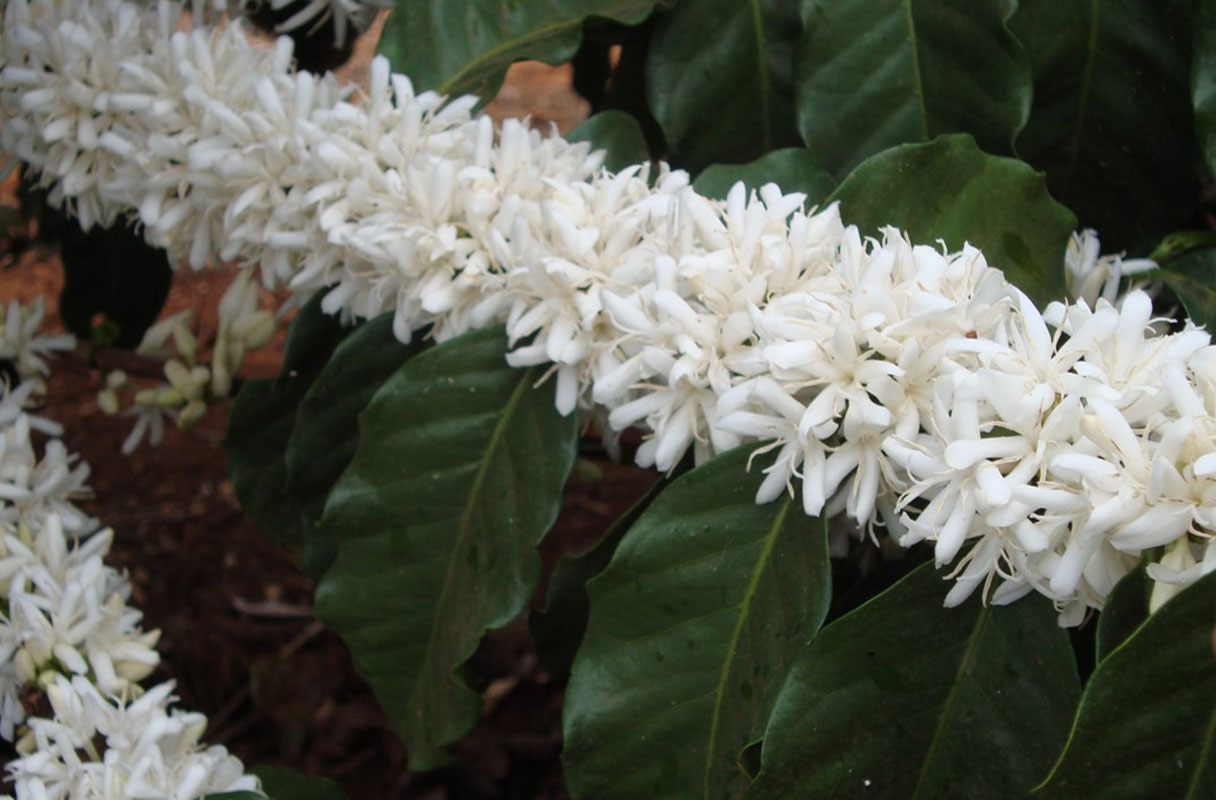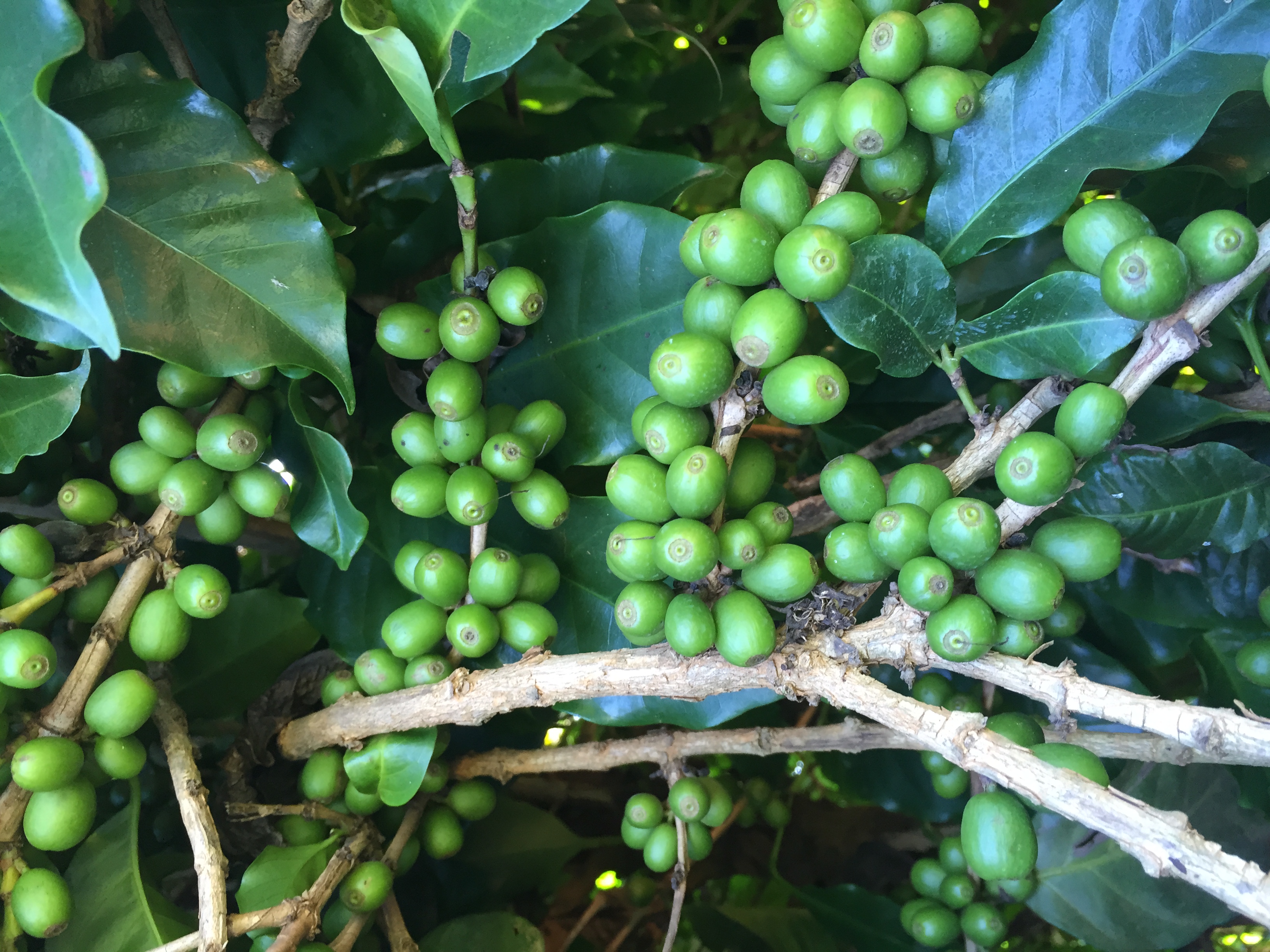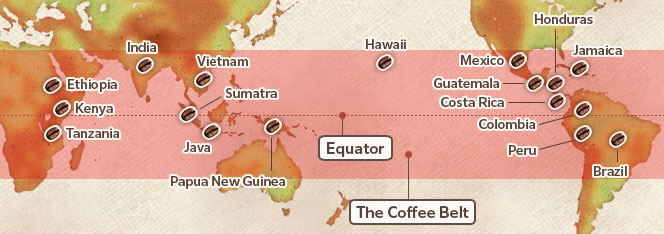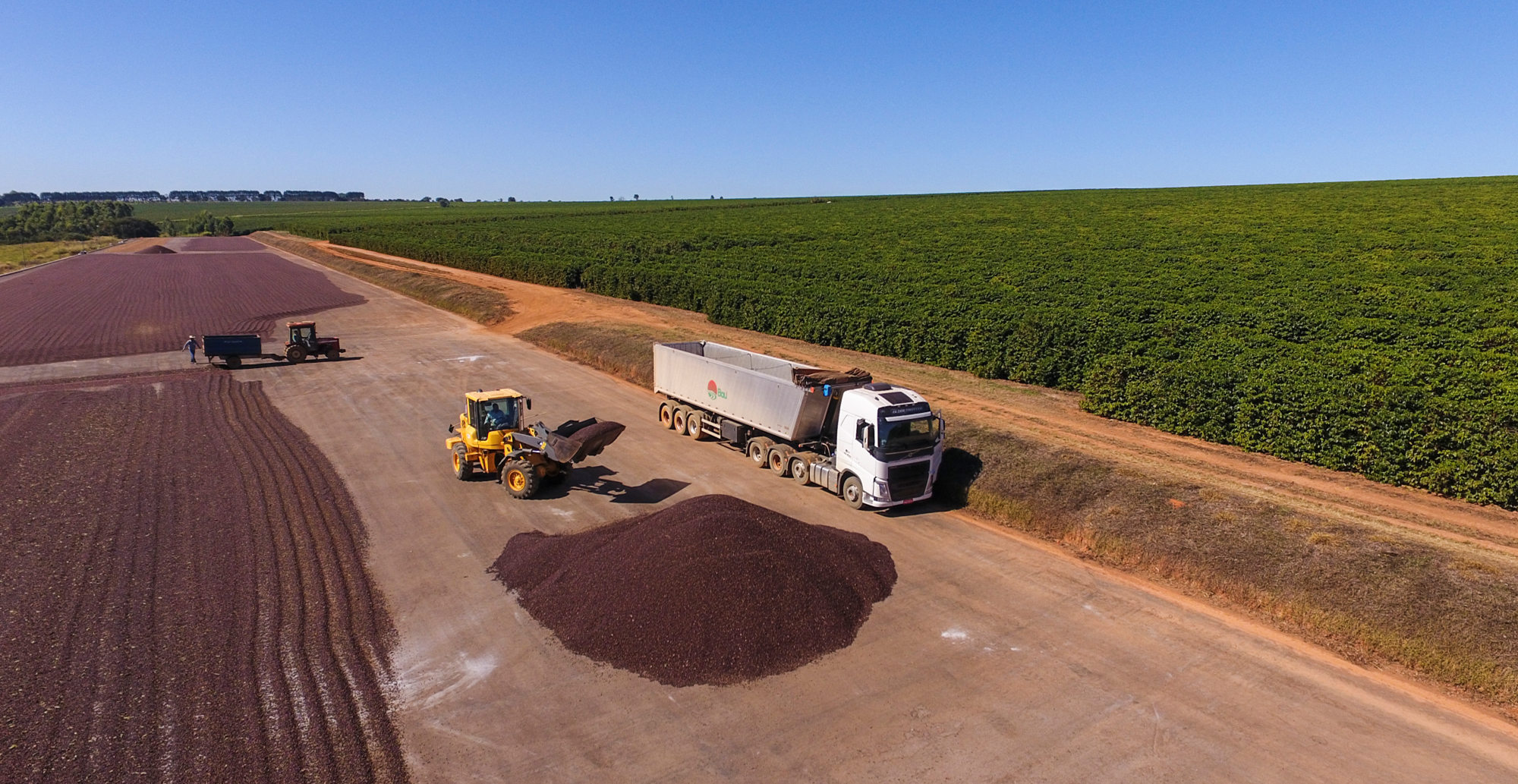Along with society
Reducing GHG Emissions and Supporting Coffee Farmers Through the Use of Amino Acids

Ajinomoto AGF, Inc. celebrates its 50th anniversary in 2023. Brazil is one country from which the company imports coffee beans to make its mainstay coffee products, and here, Ajinomoto AGF, Inc. is creating a bio-cycle while engaging in coffee cultivation practices that solve environmental issues.
The Environmental Challenges of Growing Coffee on Large Plantations
Ajinomoto AGF, Inc. imports coffee beans from Brazil, Colombia, Vietnam, Indonesia, and other countries. We conduct corporate activities while building close and trusting relationships with plantations in various countries, one of which is Fazenda Bau in Brazil.
Fazenda Bau, operated by the Fukuda family, is one of the largest coffee plantations in Brazil, with a total area of 1,910 hectares (about 1,900 soccer stadiums) and a cultivated area of 1,164 hectares.
Brazil is a major coffee bean-producing country, and research on fertilizers for growing good-quality coffee beans is extremely advanced. One example is the use of different fertilizers depending on the season and the growth conditions of the coffee plants. At the same time, greenhouse gas (GHG) emissions from chemical fertilizers made using fossil fuels are a serious environmental challenge in Brazilian coffee cultivation. This is of particular concern on large tracts of farmland such as Fazenda Bau.



Supporting Coffee Plantations Using Co-Products. Solutions for Environmental Challenges.
The Ajinomoto Group produces amino acids through fermentation processes from crops that are easily available in each region. We use as fertilizer and feed nearly 100% of the nutritionally rich by-products (co-products) that remain after extracting amino acids in the fermentation process. Ajinomoto AGF, Inc. supports solutions to the environmental issues faced by coffee plantations through the use of co-products, building a bio-cycle that contributes to the reduction of GHG emissions through this circular amino acid fermentation process.
In 2017, in collaboration with Fazenda Bau and AJINOMOTO DO BRASIL INDÚSTRIA E COMÉRCIO DE ALIMENTOS LTDA., we began coffee cultivation using AJIFOL® , an organic fertilizer made using co-products. Coffee is a delicate agricultural product easily affected by sunlight and weather. The process from planting to harvest takes some three to five years. AJIFOL® facilitates the cultivation of high-quality coffee comparable to that obtained with chemical fertilizers, both in terms of yield and quality. We also found that the use of co-products reduces GHG emissions.


Sustainable Coffee Cultivation and the 2050 Problem
Coffee cultivation faces a major global challenge: the 2050 Problem. Coffee is produced in the so-called coffee belt, a tropical-subtropical area between 25 degrees north and 25 degrees south latitude across the equator. Brazil, Vietnam, and other coffee-producing countries are scattered along this coffee belt. Experts predict that climate change due to global warming will reduce these coffee-growing areas by half by 2050. Ajinomoto AGF, Inc. supports sustainable agriculture, secure production, and the reduction of GHG To this end, we collaborate with Fazenda Bau, as well as coffee producers in Vietnam and other Southeast Asian countries.emissions through the use of co-products in meeting the future challenges of coffee cultivation.


